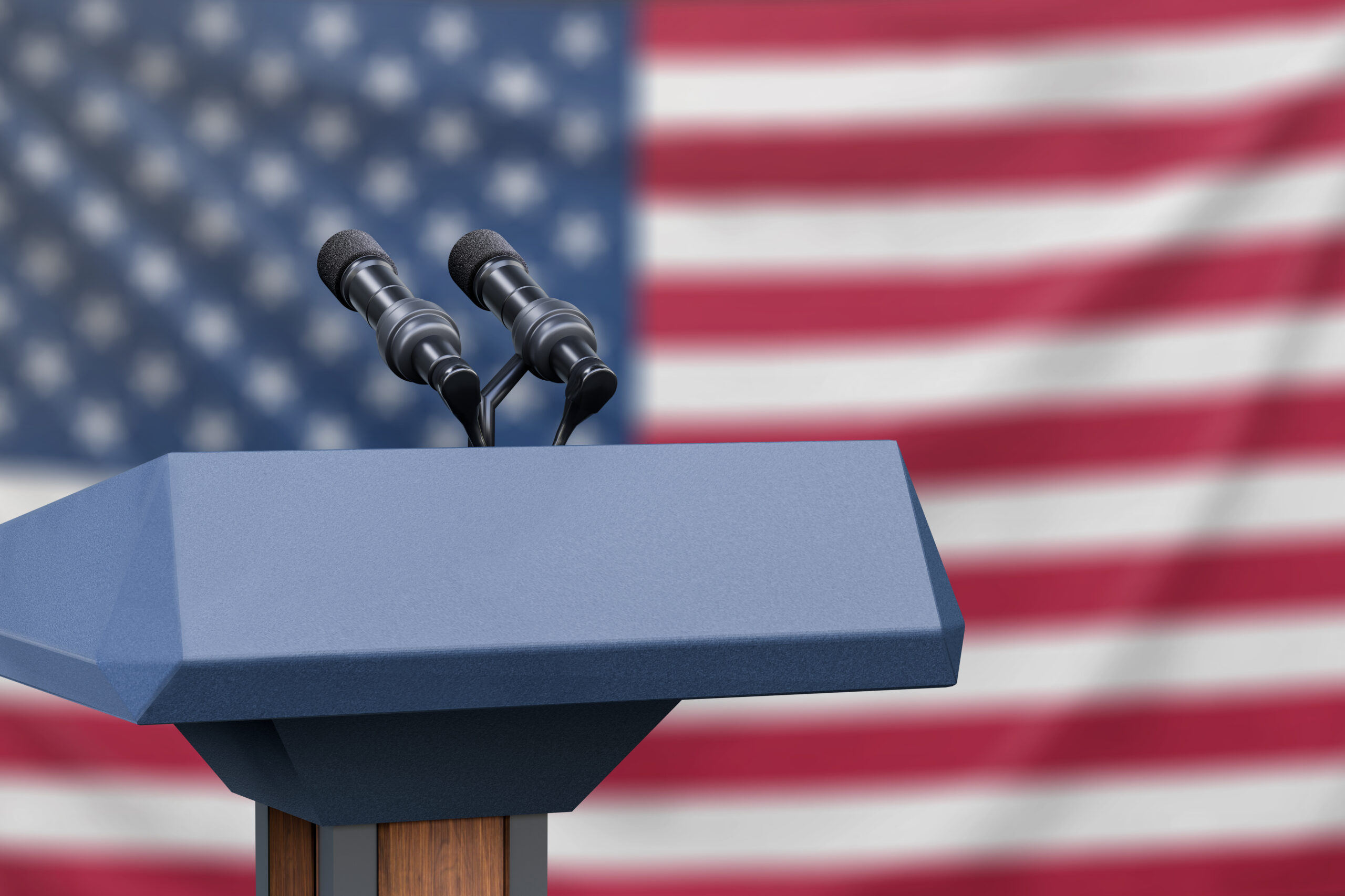
8 Winning Debate Tactics That Can Help All Communicators

It’s a big night as American presidential debate season gets underway. And Joe Biden and Donald Trump have a lot riding on their performances.
How will Biden take on Trump, when there’s just so much to go after? ($750, anyone?)
Will Trump be able to throw Biden off message – and off his game plan?
And, most importantly, will the debates cause any voters to shift their opinion – and their votes – especially in those crucial purple swing states?
We won’t know the answers until after the debate. And it will take a few days of coverage to know exactly what the impact will be.
But we can all learn a lot from how the candidates are likely preparing for the biggest debate of their lives.
Here are eight things every well-prepped political debater works through that you can borrow when crafting and delivering your own message – not just in debates, but every opportunity you get.
Think about your audience
It doesn’t matter whether you’re debating – or posting on social, planning paid advertising, or delivering a speech. The first step towards a great message is figuring out what you want the impact to be. Who are you speaking to? What are they thinking now? And what do you want them to be thinking after hearing your message?
Figure out your strategy – and focus on it
They don’t call it strategic communications for nothing! Every good communicator needs a strategy based on an honest assessment of their own strengths and weaknesses, as well as those of their competitors, and a realistic sense of the opportunities and expectations right now. It’s vital to know the overall plan – and how best to position yourself to achieve it.
Craft your message
It takes a lot of work to figure out the right message. Debaters need to perfect the art of delivering the message – as well as knowing exactly how they plan to throw any surprise punches. It’s crucial to declutter your message, removing the excess to help focus on the take-away.
Make a game plan – and stick to it
What needs to be achieved in this moment? Biden and Trump will both have game plans in every debate – and it likely involves throwing the other off theirs. Every debater needs to know how they’ll take on their fellow debaters, without getting dragged off course themselves.
Keep it short and simple
This is a wonderful rule for almost everything in communications. And it’s hard to practice – there’s always more to say! But this US election has provided ample evidence that shorter is better. At the Democratic National Convention, the average speech clocked in at 2.5 minutes. Debaters have even less time – just 30 or 60 seconds. And knowing how to share your message in such a tight way is great media training for any professional communicator.
According to the New York Times, Biden has summarized his debate prep as “making sure I can concisely say what I’m for and what I’m going to do.”
Share good stories
It’s important to know the facts and know which ones resonate. But the best way to connect with your audience is to share the stories of real people. Joe Biden has talked a lot about his own childhood, growing up in Scranton, and he hopes that story shows his connection to voters’ lives. Even more important are the stories we can share about others – real experiences that have the power to move people the way that statistics and numbers rarely can.
Find your tone and watch your body language
How you say it is often more important that what you say. Debaters spend lots of time practicing their tone and getting their body language just right. You don’t want to spend the evening leaning on the podium. And Hillary Clinton would also suggest that it’s best to not lurk awkwardly close to your opponent…
No matter how you’re communicating it’s crucial to find the right tone to express your voice (or your brand’s voice) on any given issue.
Don’t spin yourself
After a debate, candidates need to assess their own performance – and that’s true for communicators, too. After media interviews, speeches, and advertising campaigns, it’s vital to debrief and reassess. How did it go? What needs to change? And what will the competition change about their performance?
Biden and Trump can be expected to put some of these tactics on display in their debates. But these tips are also the best practices for all persuasive communications – and they just might come in handy the next time you’re debating with yourself about how best to get your message to your audience.



